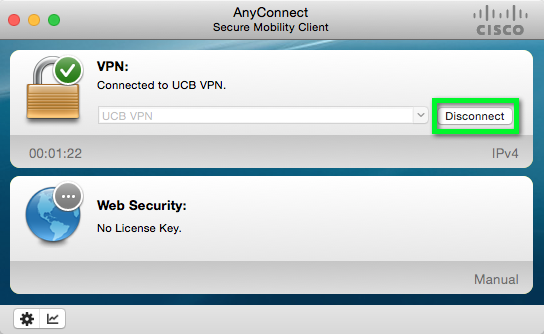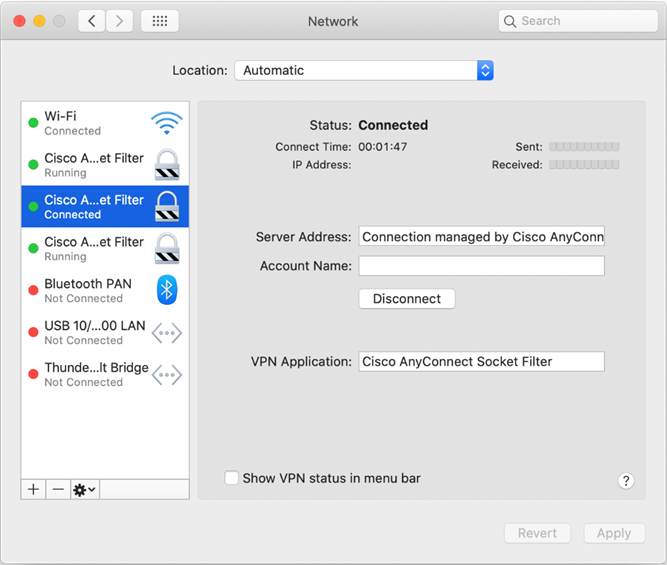Macos Set Dns For Anyconnect

Similarly, your Wi-Fi router has a DNS cache as well. This is why most people recommend rebooting the router as a troubleshooting step, as it flushes the DNS cache as well. If your Mac is running an older version of macOS, you might want to learn how to reset DNS cache in macOS High Sierra, or flushing the DNS cache in macOS Sierra and so on. # This file is not used by the host name and address resolution # or the DNS query routing mechanisms used by most processes on # this Mac OS X system. Arshad chohan obstetrics book pdf. # # This file is automatically generated. Personally, I would send the guy who wrote this message to do some phone support for two months. If your VPN DNS changes, you need to change it manually. This can easily be checked under Network → VPN interface w Advanced → DNS tab since your VPN DNS is still assigned dynamically to the interface (although ignored by OS X). If your 3G DNS changes (unlikely) you need to change it manually too. Since DNS settings are global on Mac OS X, it is not possible for DNS queries to use public DNS servers outside the tunnel as documented in CSCtf20226. To start with AnyConnect 4.2, host routes for the Tunnel DNS server(s) are automatically added as split-include networks (secure routes) by the AnyConnect client, and therefore the split-include. This leads to DNS query timeouts, but under certain circumstances to complete DNS failures, as the system insists on using the unreachable DNS server. The problem exists for a long time now, at least since macOS Mountain Lion. For a long time I had to live with this annoyance, as the issue persisted with every new version of the AnyConnect client.
Feature
The AnyConnect VPN server on the MX uses TLS & DTLS for tunneling and requires AnyConnect VPN client version 4.8 or higher on either Windows, macOS, Linux, or mobile devices to terminate remote access connections successfully. The AnyConnect client negotiates a tunnel with the AnyConnect server and gives you the ability to access resources or networks on or connected to the AnyConnect server (MX). Unlike the AnyConnect implementation on the ASA, with support for other features like host scan, web launch, etc, the MX security appliance supports SSL, VPN, and other AnyConnect modules that do not require additional configuration on the MX. For more details, see AnyConnect on ASA vs. MX.
An AnyConnect Plus/Apex (termed or perpetual) license will be required to use AnyConnect on the MX when MX16.X firmware goes GA. Until then, if an MX upgrades to MX16, AnyConnect will be available as a feature. If a license is not linked when MX16 goes GA, AnyConnect will become unusable until a license is applied. More details on applying licenses will be available soon.
The MX supports L2TP/IPsec Client VPN and AnyConnect VPN simultaneously.

A recent issue came up with some of our customers that use Mac computers who were having issues trying to connect to our VPN using the Cisco AnyConnect client v3.0. The root cause was that they were running the latest Mac OS X version, 10.8 Mountain Lion, which is not supported by the AnyConnect version 3.0 and earlier. And of course, the web deploy version 3.0.08057 was what was on our ASA.
In order to fix this specific problem we updated all of the AnyConnect client versions on our ASA to the latest 3.1 releases for Windows, Linux, and Mac, then had our Mac users running 10.8 Mountain Lion log back into the VPN web portal. They were prompted to update their AnyConnect client to the new version, which we had set up on the ASA to force client updates, and now they were able to access VPN without any issues.
However, we found out that there were some caveats with updating to the AnyConnect 3.1 release. We now gained the ability to support 10.8 Mountain Lion operating systems, but 10.5 Leopard support was dropped. So unfortunately, this locked out several of our customers that were still running Mac OS X 10.5 Leopard on their Intel Macs. In short, they couldn’t connect to VPN because the profile settings on our ASA are configured to force the installation of the current edition of the AnyConnect client on the ASA in order to access VPN. When the installer for the 3.1 client launched, they were presented with an error that told them their operating system was not supported, then the install failed. So, since these Mac OS X 10.5 Leopard users couldn’t update to the newest client version, they were locked out of our VPN.
Macos Set Dns For Anyconnect Download
As a workaround to support all of the Intel Mac OS X editions, we downgraded the Intel Mac AnyConnect client back to 3.0 and turned off the Auto Update feature on the ASA. This will provide the 3.0 client for those that currently do not have it, as well as not perform the auto update check. The good news is that the new AnyConnect client v3.1 for Windows supports Windows XP all the way up to Windows 8 so there is no worries about upgrading it. Mac OS X is a different story.
Macos Set Dns For Anyconnect Mac
According to Cisco, here is there recommended workaround to this issue:
- Disable the client checkAuto Update on the ASA.
- If there is anyone that needs to connect to VPN with a Mac computer running 10.5 Leopard, downgrade the AnyConnect client to one of the 3.0 releases or provide the DMG installer to the Mac user.
- If there is anyone that needs to connect to VPN with a Mac computer running 10.8 Mountain Lion, provide the 3.1 DMG installer to that person.
Leap office 2000 download. I hope this helps others out that are experiencing the same issues.
Feel free to peruse the official AnyConnect release notes for more information: http://www.cisco.com/en/US/docs/security/vpn_client/anyconnect/anyconnect31/release/notes/anyconnect31rn.html#wp44364